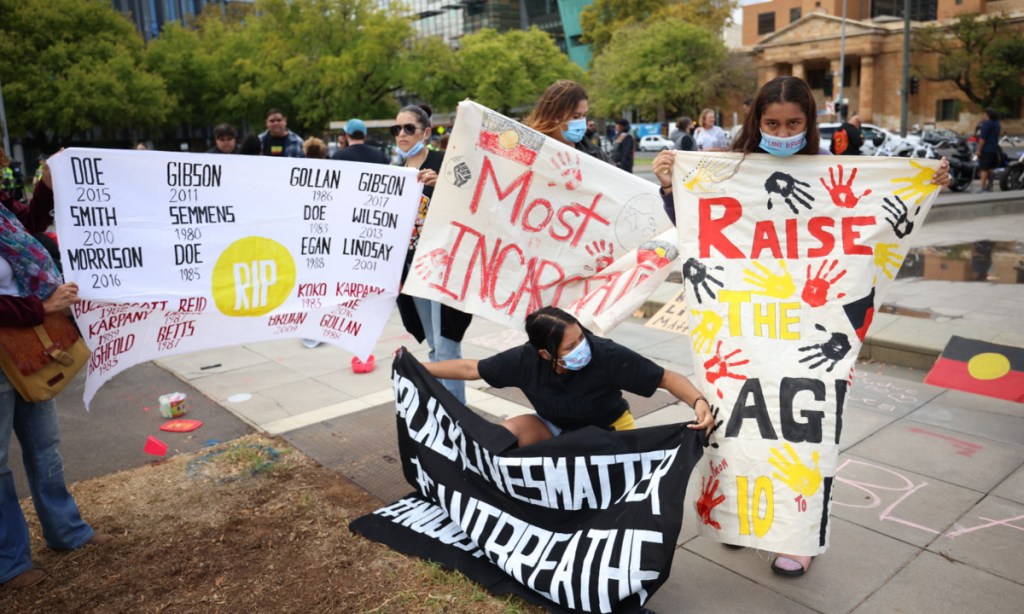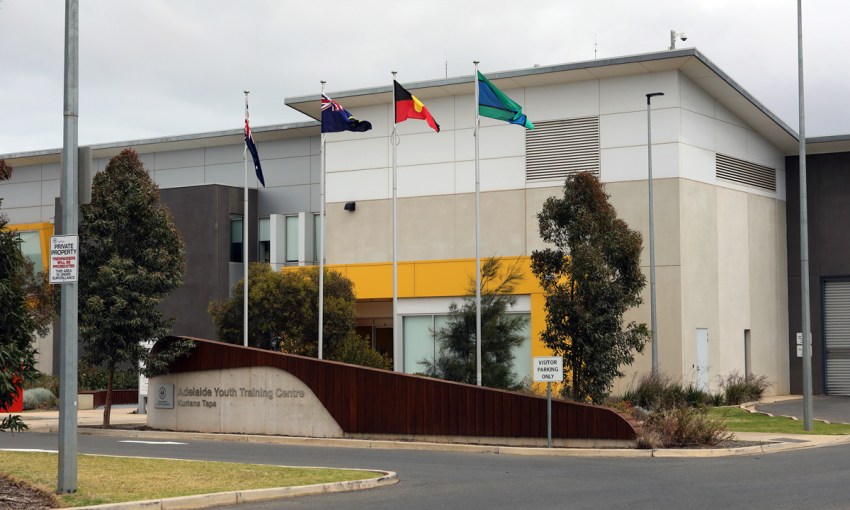Despite much public campaigning and lengthy national discussions between state attorneys-general, South Australian children as young as 10 continue to be fed into a justice system that sees them as criminals rather than kids, as InDaily reporter Stephanie Richards explains.
Justice for all ages
“When I was 10, I was locked up. I’ve spent three birthdays over there… The first time, I was 10. It was very scary.”
Those are the words of a young person detained at Adelaide’s youth detention centre, quoted in a report by the state’s youth justice watchdog, Training Centre Visitor Penny Wright, in 2020.
It’s a confronting reality that every year, a would-be Year 5 student blows out the candles on their birthday cake from within what is effectively a juvenile prison.
The Kurlana Tapa Youth Justice Centre in Adelaide’s north is home to the most ostracised young people in our society – people whose behaviour is considered so serious and violent that mandatory detention is deemed in their best interest.
But behind the crimes are children who have experienced vulnerability and hardship, and whose behaviour is not necessarily a reflection of their identity, but their troubled past.
—Penny Wright
As Wright once told me: “These are not hardened and violent criminals, but scared kids often being held on remand because they have nowhere else to go.”
They are mostly Aboriginal, have disabilities and come from the child protection system, led into criminal activity by circumstance, or as some Indigenous groups claim, racial bias.
Under current legislation, children aged 10—14 are deemed incapable of understanding the full consequences of their actions, but that is a rebuttable presumption, meaning judges can convict them of criminal offences and sentence them to detention if their crimes are deemed serious.
In 2020—21, 43 primary school-aged children were incarcerated at Kurlana Tapa, while a growing number of campaigners have spent the past few years advocating to keep them out of detention.

The #RaiseTheAge campaign gained momentum in 2021 and is spearheaded by a coalition of legal, medical and social justice organisations, including Aboriginal and Torres Strait Islander community-owned organisations, the Law Society and Australian Medical Association.
By encouraging social media users to post photos of their 10-year-old selves, the campaign aims to highlight that young children do not have the mental capacity nor moral understanding to fully comprehend the consequences of their behaviour.
New here? Sign up to receive the latest happenings from around our city, sent every Thursday morning.
“Children belong in classrooms and playgrounds, not in handcuffs, courtrooms or prison cells,” the campaign’s official website states.
So far, not one Australian jurisdiction has changed its laws, despite moves in the Northern Territory and ACT to consider legislative changes.
The stagnant response is in part due to attorneys-general being reluctant to raise the criminal age without first considering what would happen to young offenders if detention was no longer an option.
South Australia’s former Attorney-General, Vickie Chapman, described the dilemma as such: “We would fail our children if we simply changed the law and raised the criminal age of responsibility, without addressing alternate supervision and support for 10-to-14-year-olds.
“The feedback I have received from the Youth Court, SAPOL and the Commissioner for Victims Rights is that any change to the minimum age of criminal responsibility must be accompanied with better protections and support programs for that vulnerable cohort.”
—Kyam Maher
During her four years as Attorney-General in the Marshall Government, Chapman insisted on waiting until all states and territories reached a national consensus on whether to lift the criminal age before changing South Australia’s laws.
Any such hopes were dashed last year, after the Council of Attorneys-General failed to settle on a position after four years of deliberation – an outcome which sparked both national and international condemnation, including from the United Nations.
The newly installed Malinauskas Government, which was silent on the issue while in opposition, is now being challenged to show its hand.
Attorney-General Kyam Maher, who is also the state’s Aboriginal Affairs Minister, says he appreciates that raising the age of criminal responsibility has generated “considerable debate” both locally and nationally.
He admits that raising the criminal age could go some way to reducing the overrepresentation of Aboriginal children in youth detention (on any given day, Aboriginal children account for over half of detainees at Kurlana Tapa, which takes its name from the Kaurna phrase ‘new path’), but says more work needs to be done before legislative change is made.
“Now that we are in Government, I have started to hold discussions on this matter and will be raising this for discussion with my colleagues interstate,” he says.
Until then, children aged as young as 10 will continue to be charged, convicted and sentenced to youth detention in South Australia – a prospect which speaks to the failure of our state to properly nurture and care for our most vulnerable citizens.




